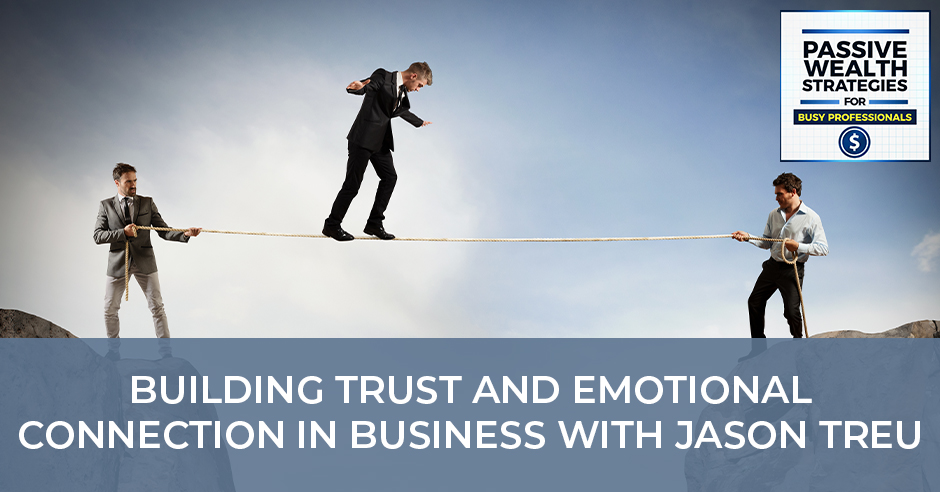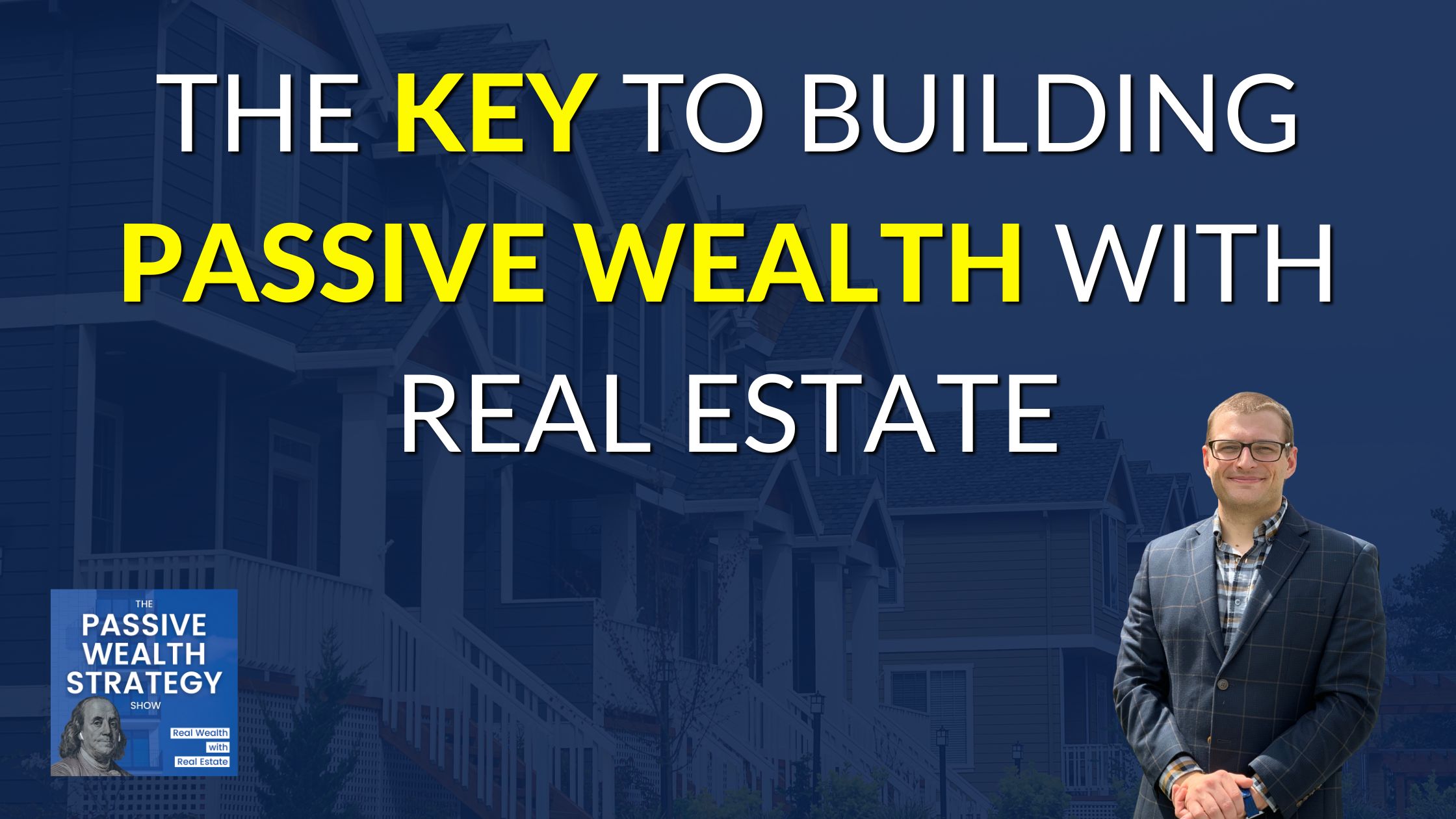When you think about the best team you’ve ever been on in your life, whether that’s a sports team or professional or a startup company, you feel the confidence level and your ability to take on risks and hurdles at an all-time high. When you’re in an environment like that, you have very high levels of trust with the people you’re with. How do you create an environment like that with your own team or business prospects? Leadership and management expert Jason Treu shares how you can speed up the process of building trust and emotional connection with your team and prospects that would be significant for your back pocket, your success, and your fulfillment.
—
Building Trust And Emotional Connection In Business with Jason Treu
Our guest is Jason Treu. Jason is an executive coach and a leadership and management expert. He coaches managers and entrepreneurs on how to get their teams running at their best. Jason has spent fifteen plus years in leadership positions in Silicon Valley working with and learning from some of the greatest business leaders in the world. Steve Jobs, Mark Cuban, Reed Hastings, the CEO of Netflix, Mark Hurd, the CEO of HP and many more. He’s got a lot of awesome things to share, so I don’t want to waste any more time. Jason, welcome to the show.
Thanks for having me on and speaking to your fantastic tribe.
We were discussing the importance of trust and emotional connection with people on our teams and our prospects and people we interact with in business in general. I’d like to jump and recap that because that rang true to me. I count myself as someone that I know it’s important but I’m still working on the skill of developing the emotional connection with my prospects and my team and building that trust and showing myself as being trustworthy.
I think one of the ways to look at trust and a question to ask yourself is to think about the best team you’ve ever been in your life. Whether that’s personal, professional and school sports team, a startup company or whatever it may be and how did you feel about the people around you? How do you feel about the things you were able to achieve? Your confidence level, your ability to take on risks and hurdles. When you’re in an environment like that, you have very high levels of trust with people just as you would with people in your personal life that are extremely close to you. That feeling that you thought about when you thought about the team that was the best you’ve ever been on is what keeps up leaders and managers up at night because they want to replicate that on their own teams.
Their own teams could mean internal teams, but it could be the same feeling that you have with a prospect, with an existing client or any third party. The question becomes how do you create an environment? Another way was everyone’s met someone at some point that they felt like they’ve known all their lives within the first five or ten minutes. The problem with that is you can’t replicate it over and over again. It happens here, there or maybe almost never. The key when you break that down is that someone was vulnerable and shared something probably pretty small, but it still was vulnerable, whatever it was. It led to the other person escalating that vulnerability and sharing something more. You continued to escalate it.
When you look at vulnerability, what you’re saying to someone is it safe to share with me. If you broke down that conversation, your essence would have a conversation. The first conversation would be the tenth, fifteenth or twentieth you’d have with another person. The key behind that vulnerability is trust. That’s how you build higher and higher levels of trust. Most people think that I have to know you in order for me to trust you, but that’s not the case. The key is how to use the level of vulnerability in the conversations, but something else you mentioned beforehand is also important. That’s great, but what about oversharing and boundaries? That also comes in and that’s where it becomes very difficult because a lot of vulnerability is situational in nature.
You’re having a tough conversation with someone, maybe a health scare. It could be a risk that you have to take. There are a lot of things where you have to share or open up, but it requires an event or a specific situation. If you can find ways to self-disclose information with people like you did in that conversation where you felt like you knew that person your whole life within five or ten minutes, you can do that in a safe environment where you’re not oversharing. That ultimately is your holy grail to rocket trust. When you think about it too, the other piece of it is if you ask the best salespeople, which I’ve done or people that are super-duper talented in building rapport and getting other people and influencing them, that’s what they do. They figured out some way to do that. They have their own brand and style of it, but they’re able to do that in a rocket that trust in a way that other people cannot.
That’s a tough one. My background is in sales and I’ve certainly noticed that with many of my prospects and through the sales processes. You can feel that kind of trust there. Once the trust is developed one way or another and whatever timeframe it happens, then they’ll start talking more about the real problems that they’re having. My capabilities haven’t changed to solve their problems anywhere in that amount of time. The only thing that’s changed is how much they trust me and my ability to solve their problem for them or with them.
You can have the best products or service, but if you don’t have the right people running it, that will cripple what is going on. Click To TweetThe key is really understanding that if you can speed up that initial process from when they feel comfortable to the first conversation, that is significant. That would be significant for your back pocket, for your success, for your fulfillment. Also honestly, it’s for that other person too because you could help that other person and do a lot more for them if they were able to do that. The other piece of trust when we break this down further and try to understand trust what it is. There are several aspects of trust. There’s reliability, competency, sincerity and caring. The most important part of trust when you think about it is caring.
We’ve all had people in our life that maybe weren’t sincere or maybe weren’t reliable or the most competent, but if someone cared about us, we kept them around the longest out of any of those. If someone was super reliable or competent but they didn’t care about it at all, that probably was a super short relationship or relationship where it was expedient. Meaning, I needed something from them, therefore I kept them around. You need to insert and inject caring into the trust part. That’s where the vulnerability comes in and that’s why it works exceptionally well when you can figure out how to do it and how to go about doing it. In a situation like yours where you’re selling or any scenario where you’re interacting with other people even personally.
This is a valuable skill. Whether you’re selling or negotiating to buy a car or you’re just trying to connect with other people out in the world. I think about the skill of being vulnerable, it seems like anything else being a skill if we want to get better at it, we need to work on it. There might be those occasions where maybe we do overshare and we need to step back. What are your thoughts about that?
I think you have to practice it. Brené Brown’s my favorite author and she’s got one of the three most downloaded TED Talks of all time. The TED Talk is called The Power of Vulnerability. She’s got several great books that people can read. It’s the only author I give every one of my clients to read because the books are golden to teach them. The fastest ways and best ways to be successful and fulfilled and also help people that they’re interacting with. You’re right, vulnerability is a skill. Of course, some days you’re going to overshare and sometimes you’re going to interact with people and say things that they may feel is overstepping the bounds, but that’s life. There’s no way for you to know what someone is willing or not willing to do, but the opposite is ten times worse because it’s the slowest way to get there.
As I was tackling this issue, trying to understand all these things, I was looking what we’re talking about up and looking at research on the university side and what people were doing firsthand to understand this, I was thinking about how do you apply this? This is great to know this information, but just like a great salesperson who would tell me, I know this but it’s hard for me to teach it to someone else because they can’t think like me. I thought to myself, I have to be able to simplify this and make it so anyone could actually use this and figure this out. I came across this study back in 1997 by Professor Arthur Aron. He was trying to build interpersonal closeness between people. One of the aspects was how to get people to fall in love fast.
He did one exercise where he put 54 grad students together and they rent a room. They were complete strangers, meaning they did not know each other at all other than knowing their first names when they sat down because they introduced each other. Over 45 minutes they asked each other 36 questions. These were very vulnerable questions and rather, these were complete strangers. One of the questions they asked in the process was, tell me three things that you like about me. That’s pretty hard when the only things you know are what someone told you and what you could observe with them when you were sitting down. What was incredible at the end of the research and he replicated this study dozens and dozens of times across geographies, people, ages, genders and everything else, was that 30% of the people and they surveyed them before and after rated the relationship with a complete stranger as the closest relationship in their life.
There’s something there if that is possible in 45 minutes to do that. That there are people they knew for decades or many years and that they didn’t feel that way about. Partly I think it is that we don’t ask each other questions so the bar is so low that a snake could crawl over it and it’s the generation we’re in. People don’t have the same types of conversations where social communication, emotional skill sets are at the lowest they’ve ever been. The other part of it is if you take a look at loneliness in the US, they’ve done studies on it. It’s anywhere from 25% to 40%, meaning that people feel all alone, not that they are all alone. They’re more disconnected than ever before. Trying to connect to people is something they’re starving for. Doing it in a business setting is good for you to be able to do.
I took this information and I’m like, “Great.” I went out to some coffee shops and I started to ask people questions like this and I got answers. Some of the people felt like I was definitely oversharing and over asking. I asked them and they said, “It already feels uncomfortable. I don’t know a stranger.” I thought to myself, after doing this for several dozen people and I got some pretty mixed results, I was like, “There has to be something else.” What I did was I called up a friend of mine that he didn’t know that well. I asked them, “Let’s do a dinner party where you’re bringing people that you know fairly well, but none of them exceptionally well and let’s play Arthur Aron’s game and see if it works in a group of people.” He set it up as doing one-on-one. I was like, “What if he did it in a group?”

I set it up in a group and I had an hour and a half dinner with people, and I figured out. There is plenty of time, go through these questions. Maybe we’ll go through instead of 36 maybe just ten or twelve, and I thought that was plenty. I did it three times and all three times people would not let me go until we went through all the questions, which took three-plus hours at dinner that I did not anticipate. They are eating it up and they absolutely loved it. The things that they shared in front of me were mind-boggling and unbelievable. I never thought that people who were complete strangers to me. Some of the people they didn’t know would be that willing to share all that information with and doing it.
At the end of that, I was like, “There’s something here.” If I can gamify it, it goes back to us being little kids and playing games, so it makes it seem safe. As adults, we all love to play games. Cards Against Humanity and all the rest of the things. That’s what we do. If I could gamify this and create an environment, it could take off and work. I did that. I created my own questions and then I went into my first group session and I was testing this out. I’m not charging people. I’m trying to understand how this would work. I went into my first session with people and there were two women that hated each other. They were archenemies, super friends. Hate was the way the people described that it was doing in the group. It was not my interpretation, so I was nervous.
The first time I’d ever done anything like this and I was like, “This thing’s going to blow up like the Titanic and I’m going to look like a complete idiot.” We went and we had a group and went around asking questions. One of them, the questions I had was, “Tell me about the biggest loss you’ve had in the last five years.” One of the women said their dog and the other one said their mom. You’d logically think, “What do these have in common and how can anyone relate to that?” What I didn’t understand at the time was it’s not just about the experiences that we share and the facts about them, it’s the emotions that draw us in and somehow or another that was a trigger.
I saw them walk out and actually have a conversation with each other and I was like, “This is great. They’re at least talking.” I found out they went out to lunch a week later and a month later they were social friends. Imagine it was literally a 180 in 30 days and that was pretty amazing. It’s not necessarily going to work that way for every single person, but what happens is extremely powerful in what you can do. Even in a bigger group, what I’ve done in a couple of hundred people, which is interesting is that as long as people know that other people are participating, they treat everyone as though they’re in their small group. The thing can spread across anyone you’re doing it, but it allows you to be vulnerable and get to know people super well.
The other part of this thing was at the end of the summer, I had a few of my good friends say to me, “Would this work with people that know each other exceptionally well?” I was like, “Great.” I gave this to five people that were married happily for twenty plus years. Five people who were best friends who essentially lived in the same city for the whole time and actively were dealing with stuff with each other on a weekly basis. All ten people came back and said the same things. They learn a substantial amount of information about the other person that they didn’t know that would have been helpful and move their relationship significantly farther. They would never have asked them those questions ever because they would never have thought about asking them.
I think it’s important to realize that if you can do it in a setting like this and if you’re in a sales modality, what you can do if it’s a prospect at the end of it, you could say, “I like to get to know people that I’m going to work with potentially and I’ve got a fun game to play. Would you be up for playing it?” Most people say yes because they’re playing a game and you can play a couple of rounds of the game and I’ll give it to you for free. You’ve got no reason not to test it out. If you have an existing client, you can sit down over lunch and play it. Even play it in a group of people if you’re working in a group of people on that side and share this stuff and people just eat it up.
I like that idea a lot. Just casually mentioning it, proposing it as a fun little activity and see where it goes.
I told people to start off slow by playing a couple of questions with someone. If they don’t want to play more, then you don’t have to. You’re going to run into people that won’t, but a lot of people will. If they do, you can build that relationship much faster and get to know them in a much better way. The thing about it is if you could create an environment where every person you worked with you knew significantly well, you’d make a lot more money. You problem solve way better, you’d have much more leeway when things go wrong so everything would work significantly better. The key lever is vulnerability to escalate trust. You can, in essence, recreate the same relationships you have in your inner circle personally, but you don’t need to be friends with them. It’s more about the information and the sharing than it is the friendship. It’s not like you have to be friends with those people. You’ll just know information about them. That will make it much easier for you to interact, learn about them and see things like their hot buttons, things that they like. All the rest of these things that are critical in business.
Sometimes fear can incapacitate people where they are afraid to act and make decisions because they're afraid to make the wrong decisions. Click To TweetJason, what is the best investment you ever made?
The best investment I have ever made was coaching and getting personal help for myself. It taught me a lot about my own blind spots, my own challenges and it helped me get past that. That helped me create my own business much more successful and doing everything I am now.
What is the worst investment you ever made?
In Silicon Valley, I worked in a startup company that I took significantly more options than pay for and I thought it would do well. I made a couple of critical errors in my analysis because I was over exuberant. I didn’t ask enough questions from the company. I didn’t ask enough questions from the people around me that probably would have opened up a lot of my eyes. A lot of it was the people managing and running the company. It wasn’t actually the product or solution.
It all comes back to people. What is the most important lesson you’ve learned in investing and in business?
I think it comes down to the people. I’ve seen a lot of companies get derailed because not the right people are running and investing in it, building the culture, training the people and leading them. You can have the best products, service or whatever it is, but if the people who don’t run it don’t, that will cripple what is going on. It’s funny because I talked to venture capitalists, private equity people or even board members. When I really dig and ask them questions about the people they’re working with on the management team, it gets down to their greatest fear is what’s between their ears that they don’t know. They can judge their talent and ability by seeing the numbers and stuff, but how they’re thinking, their fear, impostor syndrome and the rest of this stuff they don’t know. That keeps them up at night because those are the greatest unknowns.
Can you give a particular example of what someone might be afraid of? Like their business failing generally, for example or what comes to mind when you think about those types of fears?
One time I had someone telling me that they were concerned because someone’s ego was so big. They didn’t know whether it was posturing or they felt like they were actually better than everyone else. The problem is that they thought they were better than everyone else. They wouldn’t take feedback, advice and get help. They think they would know how to do it well because they had been successful. You’d been successful in the past doesn’t mean you’ll be successful again because the environment is different, the conditions, the market and everything else.

Things like that go on with people’s fears. Sometimes fears can incapacitate people where they are afraid to act and make decisions because they’re afraid to make the wrong decisions. They’re slow to move because they’re afraid to make decisions on 70% of the information. Jeff Bezos, his 2016 investor letter is gold. He talks about that in Amazon. His goal was to get 70% of the information and move quickly because most people wait for 90%. The problem with that is you have to be right. He was like, “At 70% I don’t have to be right. I can afford to do it wrong because I’ve got time to pivot and move essentially.”
The results definitely show there with Amazon being one of the biggest companies on the planet in a fairly short amount of time and Jeff Bezos always being at the helm there. Is there anything else that you’d like to share with the audience that we haven’t touched on?
You go to CardsAgainstMundanity.com to download the game that we’re talking about and there are instructions on how to use it. It’s free so there’s nothing for you to buy or anything else. You can find out more at JasonTreu.com, my website, and you’ll find a link for the game onto there.
That’s the best way for folks to get in touch with you. Everyone out there reading, I want to thank you for tuning in. I know I learned a lot. I need to think more personally about this whole concept of trust in my business and getting there faster and demonstrating all of those qualities that Jason touched on that lend into the trust. It’s definitely an interesting thing to think about and I think you probably should as well no matter what business you’re in. Once again, if you’d like to learn more, you can go to PassiveWealthStrategy.com to get more of our episodes. Please subscribe. Thank you and we’ll talk to you on the next one.
Important Links:
- Jason Treu
- The Power of Vulnerability – Brené Brown’s TED Talk
- CardsAgainstMundanity.com
- JasonTreu.com
- http://www.JasonTreu.com
About Jason Treu

Jason has “in the trenches experience” helping build a billion dollar company. He’s worked alongside well-known CEOs such as Steve Jobs, Mark Hurd (at HP), Mark Cuban, Reed Hastings (Netflix) and many others.
Through his coaching, his clients have met industry influencers such as Tim Cook, Bill Gates, Richard Branson, Peter Diamandis, Chris Anderson, and many others. He’s also helped his clients create more than $1 billion dollars in wealth over the past three years and secure seats on influential boards such as TEDx and xPrize.
His bestselling book, Social Wealth, the how-to-guide on building extraordinary business relationships, has sold more than 50,000 copies.
He was a featured speaker at TEDxWilmington 2017, where he debuted his breakthrough team building game, Cards Against Mundanity. More than 10,000+ people have played it including organizations such as Amazon, Google, Microsoft, Ernst & Young, Blue Cross Blue Shield, PRSA, Worldwide Express, Phillips May and many others.
Jason has his JD and MA from Syracuse University.






